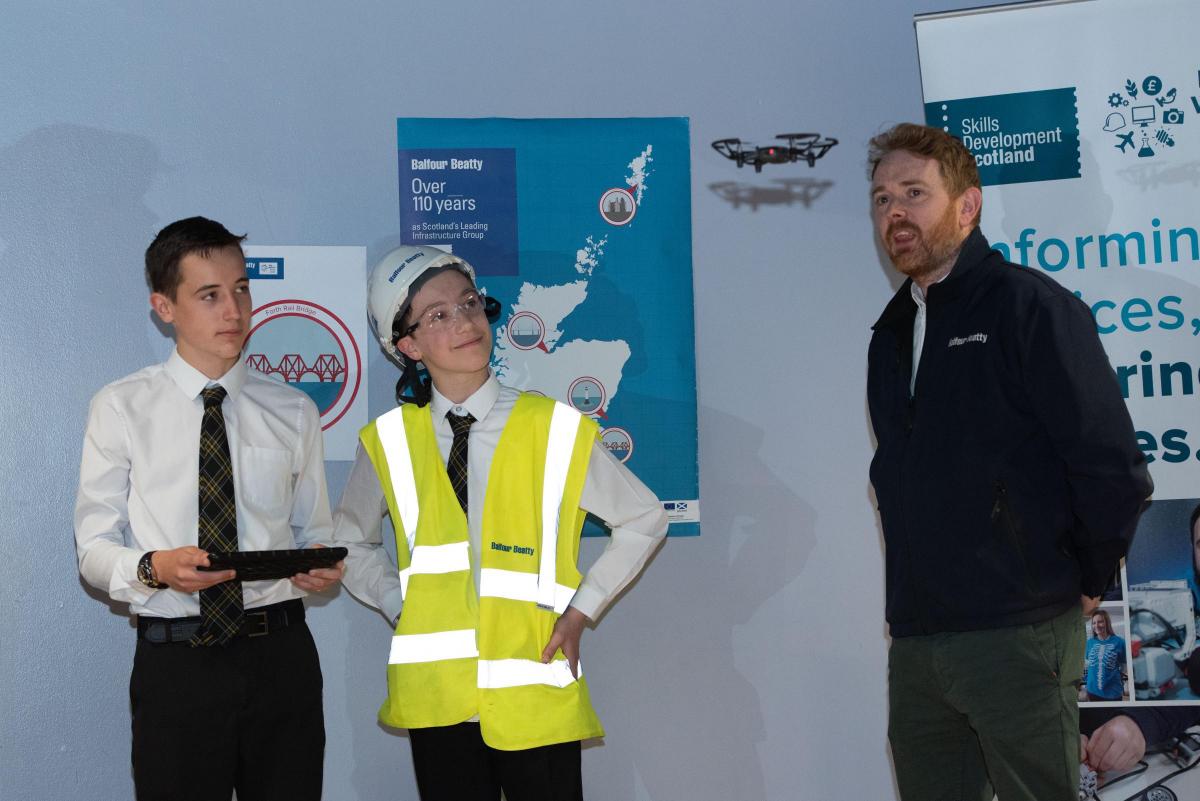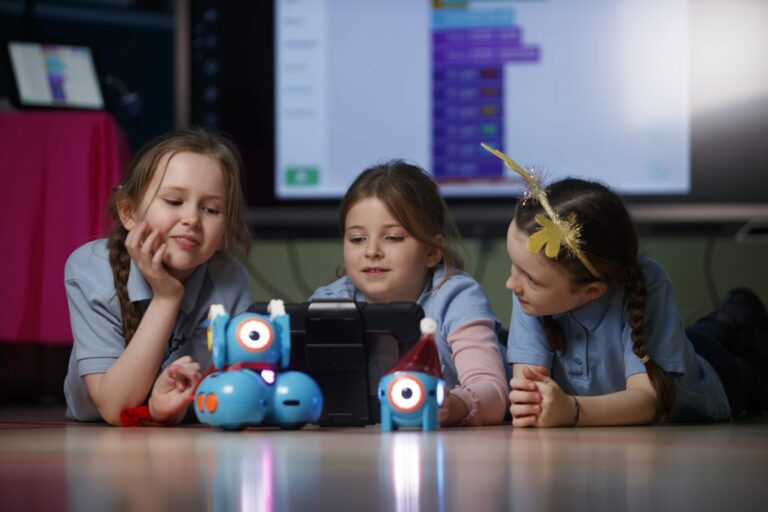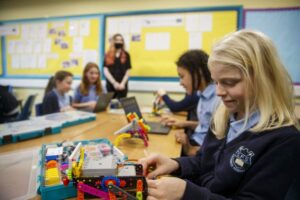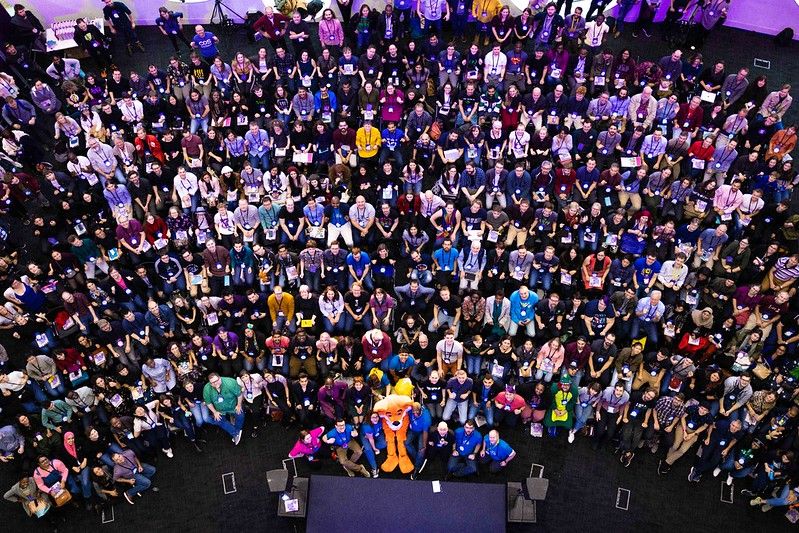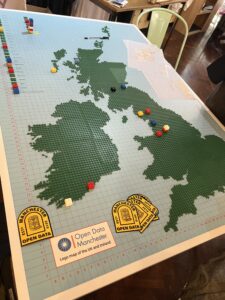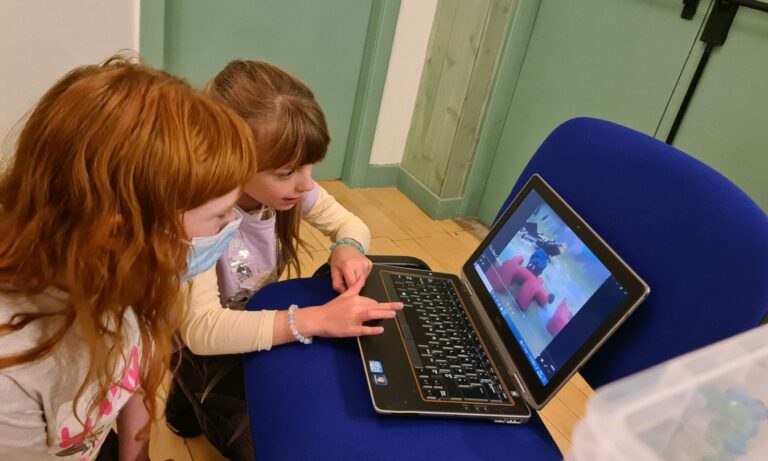Scottish pupils’ interest in tech sector reaches new heights
The following post by Skills Development Scotland and originally posted in The Herald.
An innovative series of live lessons are inspiring Scots pupils to choose careers fit for the future
NEW project Tech Industry in the Classroom sees employers from across the digital sector using their experience to offer pupils insight into their day-to-day work.
Participants get to co-create and design lesson plans with teachers, and talk directly to school pupils about their role, their company and their sector.
The initiative is led by Skills Development Scotland (SDS), who are working with a range of partners to give young people a better understanding of the range of tech careers which are now available.
Phil Ford, Head of Digital Technologies and Financial Services at SDS, said: “People actually working in technology have unique real-world experiences which resonate really well with the pupils, and they can give them unrivalled insight, in the most passionate way, into what it’s really like to work in the exciting world of the digital economy.
“By getting involved, technologists can help pupils and teachers better understand the digital world, and by talking about their team members and colleagues, they can help introduce them to the huge variety of roles available in digital tech. From cyber security to software development, and gaming to AI and beyond, the variety of career options open to those with digital skills is amazing, and many of those jobs pay well above the average salary.”
Technology firm BJSS were one of the first companies to get involved in Tech Industry in the Classroom. Laura Casci, head of delivery for Scotland said: “We got involved as it aligns with our belief in helping young people from all backgrounds to develop the digital skills they need to thrive in the future. It’s also become increasingly important for organisations to create a rich digital talent pool.”
Virgin Money also took part to help promote tech careers in financial services. Scott Fraser, a cyber security specialist with the bank, said: “This programme is a fantastic initiative.
“There is a wide range of career paths within financial services, so this is a great opportunity to provide schoolchildren with insight into the important role cyber security plays in delivering cutting-edge digital experiences for customers.
“It also gives the children some awareness of data protection and privacy which is a really important life skill as well.”
SDS has been a long-time provider of digital skills awareness and education in schools. It’s award-winning Discover Cyber Live programme reached a quarter of a million users, and has now been expanded to include other digital skills such as data management, app development and software engineering.
SDS also offers My World of Work Live – a set of fun, interactive activities that help young people understand possible future careers. Aimed at pupils in P5 to S6 across Scotland, activities are designed and delivered by experts with a passion for education and learning.
Using the latest technology, the activities help young people identify their own skills and learn about the world of work, the key sectors and what jobs Scotland will need.
Recently, pupils at Uddingston Grammar School in South Lanarkshire were the first to try out a new activity entitled Drones in Construction.
Designed in partnership with Balfour Beatty, pupils learn how to control and safely fly a drone, discover how they are used in the construction sector, and take part in skills challenges.
The aim of the activity is to inspire young people and help them understand the future careers they could explore in sectors which offer strong career prospects, including construction, ICT and digital, and engineering.
John Cairns, Social Impact Manager at Balfour Beatty, said: “We are delighted to support SDS’s work to enhance career education for pupils. We’ve invested heavily in work-based learning opportunities at Balfour Beatty, with a breadth of apprenticeship opportunities, so we know first-hand how important it is to provide inspiration and encourage youngsters to consider a career in construction.”
James Russell, SDS’s Director of Careers Information, Advice and Guidance Operations, said: “We know experiencing the world of work at an early stage leads to better outcomes for young people. These career experiences not only allow for direct connections to the world of work, but exciting partnerships with industry experts such as Balfour Beatty help address and overcome outdated ideas of careers in key sectors across Scotland.”
Visit digitalworld.net/industry/get-involved to sign up for Tech Industry in the Classroom

